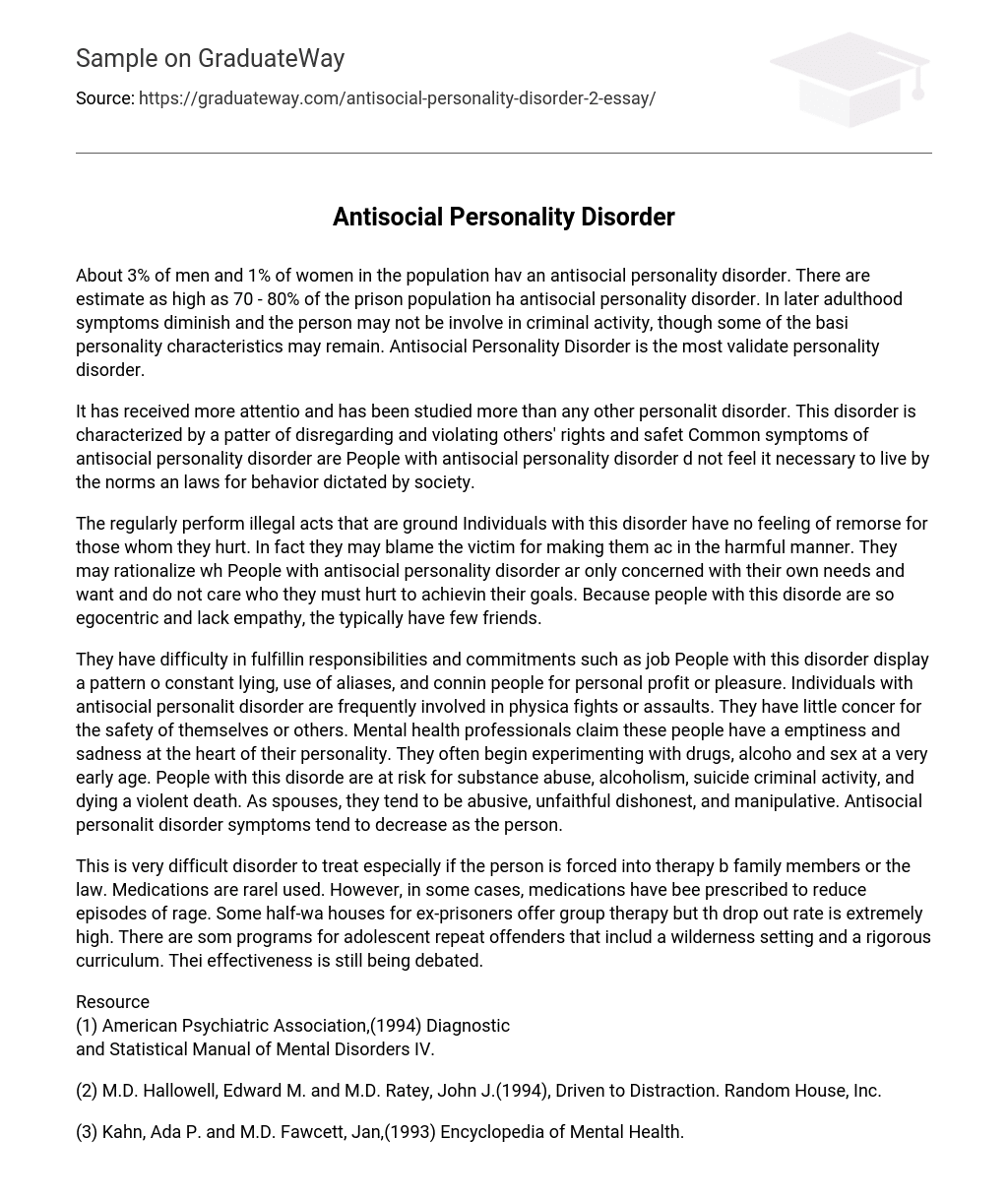About 3% of men and 1% of women in the population hav an antisocial personality disorder. There are estimate as high as 70 – 80% of the prison population ha antisocial personality disorder. In later adulthood symptoms diminish and the person may not be involve in criminal activity, though some of the basi personality characteristics may remain. Antisocial Personality Disorder is the most validate personality disorder.
It has received more attentio and has been studied more than any other personalit disorder. This disorder is characterized by a patter of disregarding and violating others’ rights and safet Common symptoms of antisocial personality disorder are People with antisocial personality disorder d not feel it necessary to live by the norms an laws for behavior dictated by society.
The regularly perform illegal acts that are ground Individuals with this disorder have no feeling of remorse for those whom they hurt. In fact they may blame the victim for making them ac in the harmful manner. They may rationalize wh People with antisocial personality disorder ar only concerned with their own needs and want and do not care who they must hurt to achievin their goals. Because people with this disorde are so egocentric and lack empathy, the typically have few friends.
They have difficulty in fulfillin responsibilities and commitments such as job People with this disorder display a pattern o constant lying, use of aliases, and connin people for personal profit or pleasure. Individuals with antisocial personalit disorder are frequently involved in physica fights or assaults. They have little concer for the safety of themselves or others.
Mental health professionals claim these people have a emptiness and sadness at the heart of their personality. They often begin experimenting with drugs, alcoho and sex at a very early age. People with this disorde are at risk for substance abuse, alcoholism, suicide criminal activity, and dying a violent death. As spouses, they tend to be abusive, unfaithful dishonest, and manipulative. Antisocial personalit disorder symptoms tend to decrease as the person.
This is very difficult disorder to treat especially if the person is forced into therapy b family members or the law. Medications are rarel used. However, in some cases, medications have bee prescribed to reduce episodes of rage. Some half-wa houses for ex-prisoners offer group therapy but th drop out rate is extremely high. There are som programs for adolescent repeat offenders that includ a wilderness setting and a rigorous curriculum. Thei effectiveness is still being debated.
Resource
- American Psychiatric Association,(1994) Diagnostic and Statistical Manual of Mental Disorders IV.
- M.D. Hallowell, Edward M. and M.D. Ratey, John J.(1994), Driven to Distraction. Random House, Inc.
- Kahn, Ada P. and M.D. Fawcett, Jan,(1993) Encyclopedia of Mental Health.





